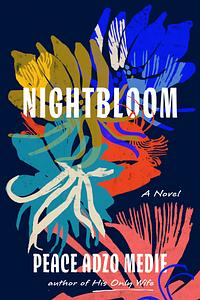Take a photo of a barcode or cover
challenging
emotional
reflective
sad
slow-paced
Plot or Character Driven:
A mix
Strong character development:
Yes
Loveable characters:
Yes
Diverse cast of characters:
Yes
Flaws of characters a main focus:
No
emotional
inspiring
mysterious
medium-paced
Plot or Character Driven:
Character
Strong character development:
Yes
Loveable characters:
Complicated
Diverse cast of characters:
Yes
Flaws of characters a main focus:
Complicated
The book started strong, but by the time it got to the portion around Selasi’s fight with the minister. It felt like it dragged. The ending felt anticlimactic for a book being about their relationship
A hilarious and heartbreaking dual narrative from the perspectives of two cousins who have differing memories of their upbringing.
fast-paced
Plot or Character Driven:
Plot
Strong character development:
Yes
Loveable characters:
Complicated
Diverse cast of characters:
Complicated
Flaws of characters a main focus:
Yes
I give this a 3.9 it was fun, fast and gripping as usual from Peace Adzo Medzie, and full of all the drama its like an eʋe/ghanaian soap opera! The characters all had qualities and flaws and my feelings changed often for all of them. Overall this was a good read.
emotional
sad
tense
medium-paced
Plot or Character Driven:
A mix
Loveable characters:
Complicated
Diverse cast of characters:
Yes
Flaws of characters a main focus:
Yes
Moderate: Racism, Rape, Sexual assault, Sexual violence, Sexual harassment
dark
emotional
hopeful
informative
reflective
sad
tense
medium-paced
Plot or Character Driven:
Character
Strong character development:
Yes
Loveable characters:
No
Diverse cast of characters:
No
Flaws of characters a main focus:
Yes
I found the first half of the book pretty interesting and enjoyed both Akorfa and Selasi’s pov however the story started to drag once I got to Chapter 14, specifically the debacle between Selasi and the Minister. After a while I became uninterested and felt the book was longer than it needed to be. I also think I might have liked it a little bit more if the different povs were told simultaneously
Throughout the narration I kept on thinking how both cousins have such a different version of the same events and really saw how privilege (or lack of it), selfishness and other people’s influence (i.e. Akorfa’s mother Lucy) can influence one’s perception.
Overall, the book definitely held my attention and I still enjoyed it for the most part.
Throughout the narration I kept on thinking how both cousins have such a different version of the same events and really saw how privilege (or lack of it), selfishness and other people’s influence (i.e. Akorfa’s mother Lucy) can influence one’s perception.
Overall, the book definitely held my attention and I still enjoyed it for the most part.
challenging
emotional
slow-paced
Plot or Character Driven:
A mix
Strong character development:
Yes
Loveable characters:
Complicated
Diverse cast of characters:
Yes
Flaws of characters a main focus:
Yes
Graphic: Pedophilia, Rape, Sexual assault, Abortion
emotional
medium-paced
challenging
emotional
sad
slow-paced





